-
IP addresses are NOT logged in this forum so there's no point asking. Please note that this forum is full of homophobes, racists, lunatics, schizophrenics & absolute nut jobs with a smattering of geniuses, Chinese chauvinists, Moderate Muslims and last but not least a couple of "know-it-alls" constantly sprouting their dubious wisdom. If you believe that content generated by unsavory characters might cause you offense PLEASE LEAVE NOW! Sammyboy Admin and Staff are not responsible for your hurt feelings should you choose to read any of the content here. The OTHER forum is HERE so please stop asking.
You are using an out of date browser. It may not display this or other websites correctly.
You should upgrade or use an alternative browser.
You should upgrade or use an alternative browser.
Lee Hsien Loong: "No one will be left behind."
- Thread starter LITTLEREDDOT
- Start date
In the PAP government's relentless push towards digitalisation (online business) and cashless payment, older hawkers who are not tech-savvy are left behind.
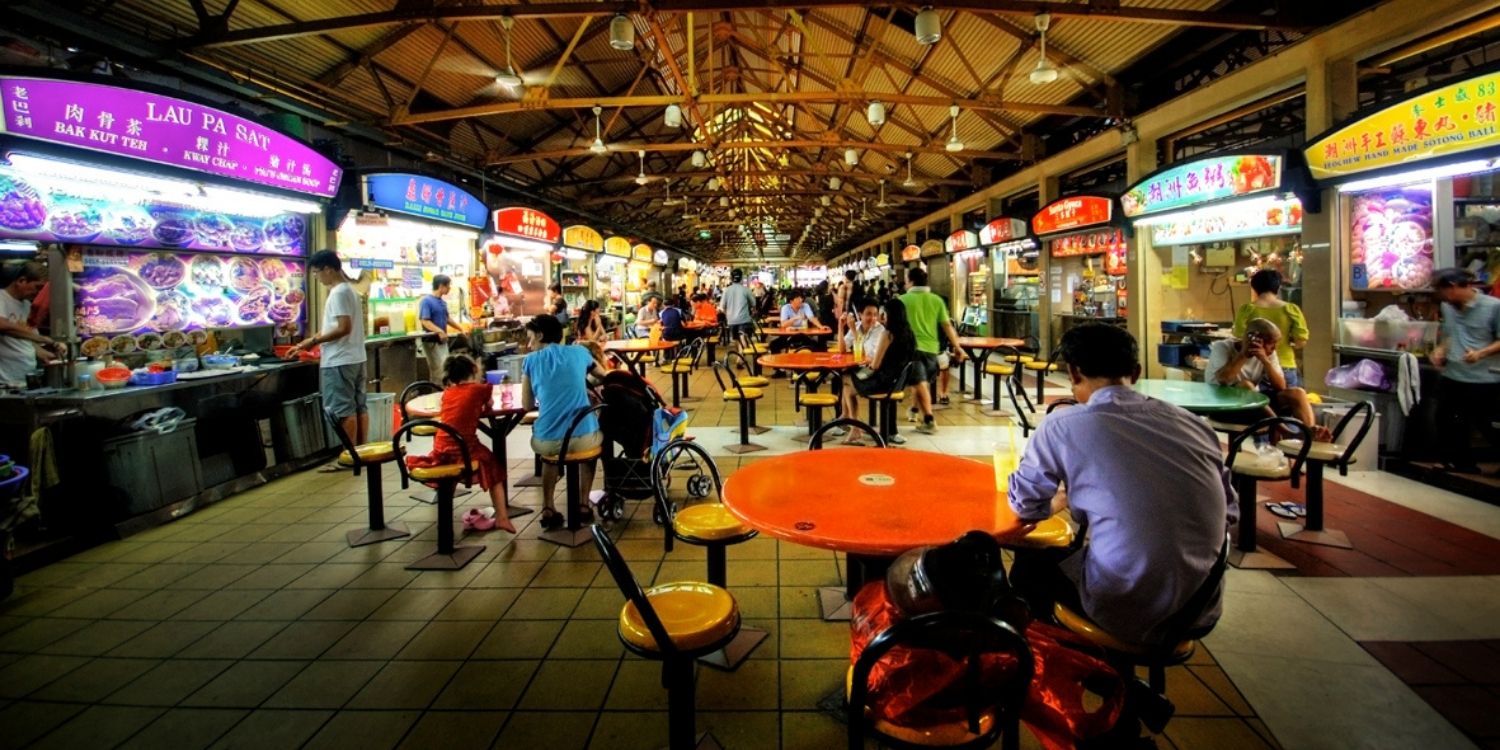
By The Must Share News Team
20 May 2021
However, some older hawkers who may not be as tech-savvy remain offline and are especially affected by the lack of physical customers.
Hoping to shine a light on their predicament, food guru KF Seetoh took to Facebook on Wednesday (19 May) urging Singaporeans to support these hawkers in these difficult times.
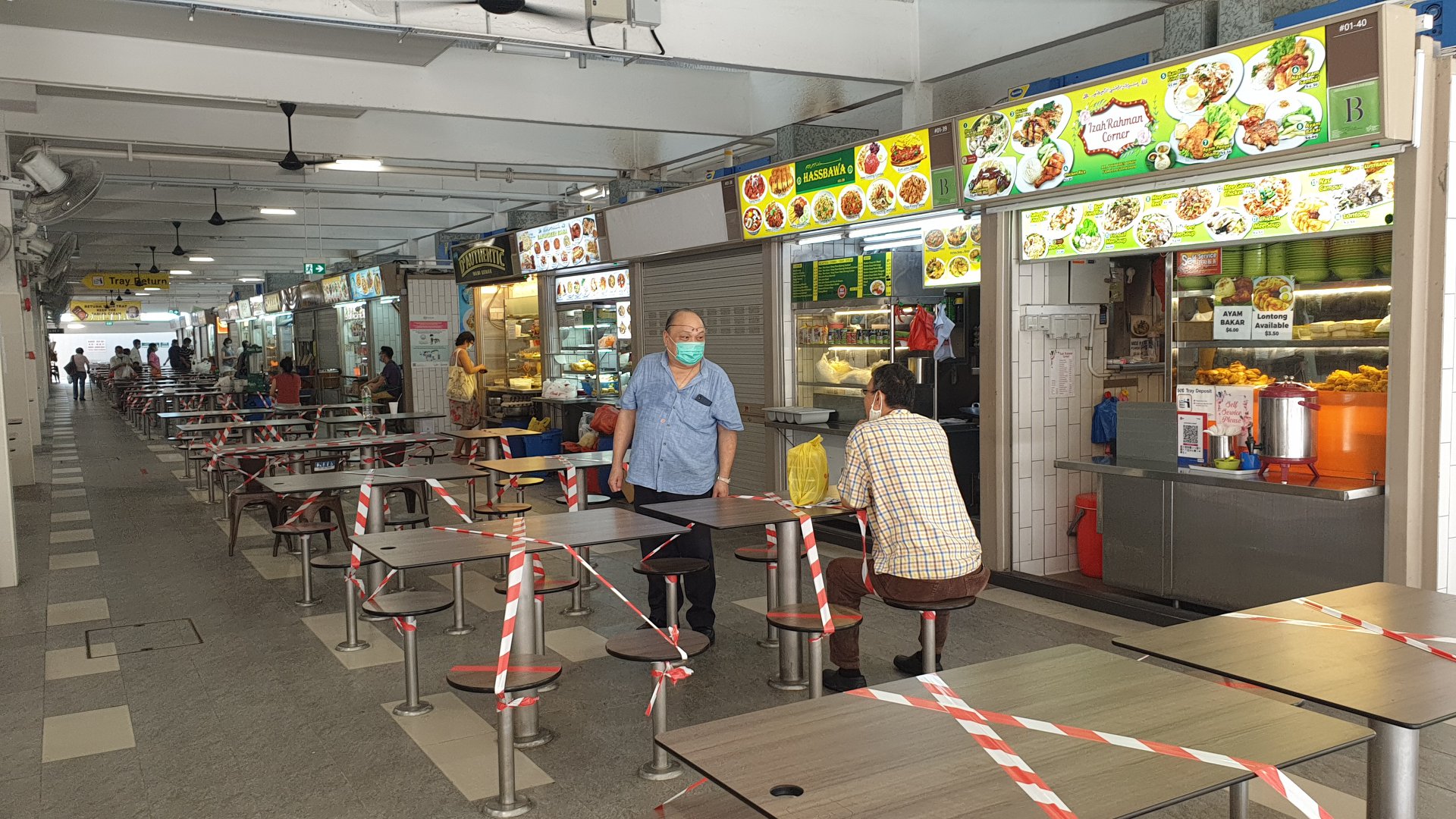 Image for illustration purposes only
Image for illustration purposes only
Source
He also reminded Singaporeans that wet markets – apparently less crowded than supermarkets – are great places to shop for fresh produce.
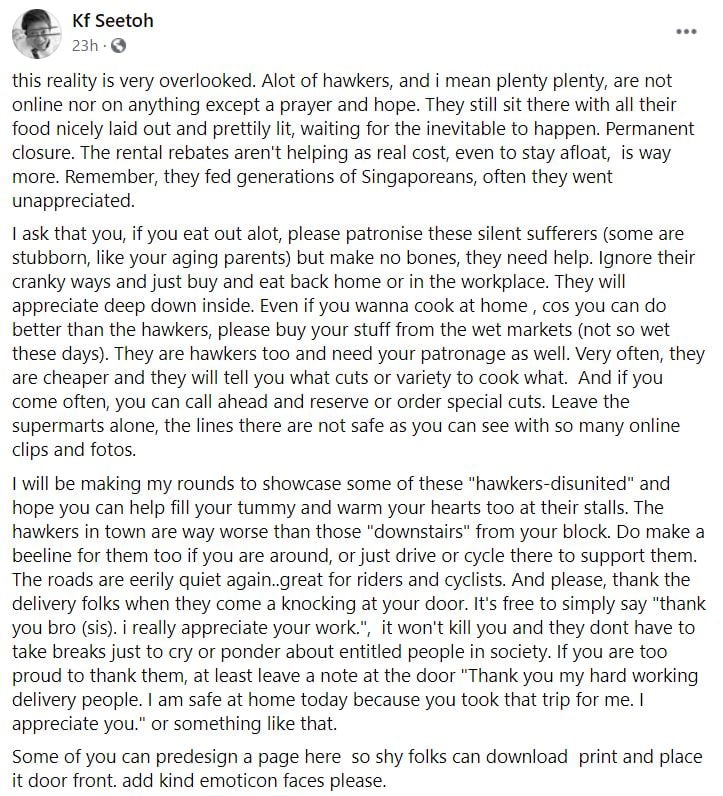 Source
Source
Even though the Government had extended aid in the form of rental rebates, that’s apparently not enough for them to stay afloat.
Given that they have fed many generations of customers, Mr Seetoh appealed for Singaporeans to support these “silent sufferers”.
Comparing them to our ageing parents, Mr Seetoh said that these hawkers might appear cranky, but they appreciate it whenever we patronise their stalls.
Hawkers in the CBD are apparently having it tougher than their counterparts in the heartlands. If you are among the minority who are still working from your office, patronising them certainly wouldn’t be the worst idea.
Over the coming days, Mr Seetoh will apparently be going around to showcase some of these “hawkers-disunited”. You can follow him on his journey via his Facebook page here.
 Source
Source
Instead of joining the crowd at supermarkets, he urged Singaporeans to visit these stalls instead.
In addition to cheaper prices, Mr Seetoh said returning customers might even be able to reserve their desired cuts of meat.
Another group that Mr Seetoh felt deserves more attention are food delivery riders.
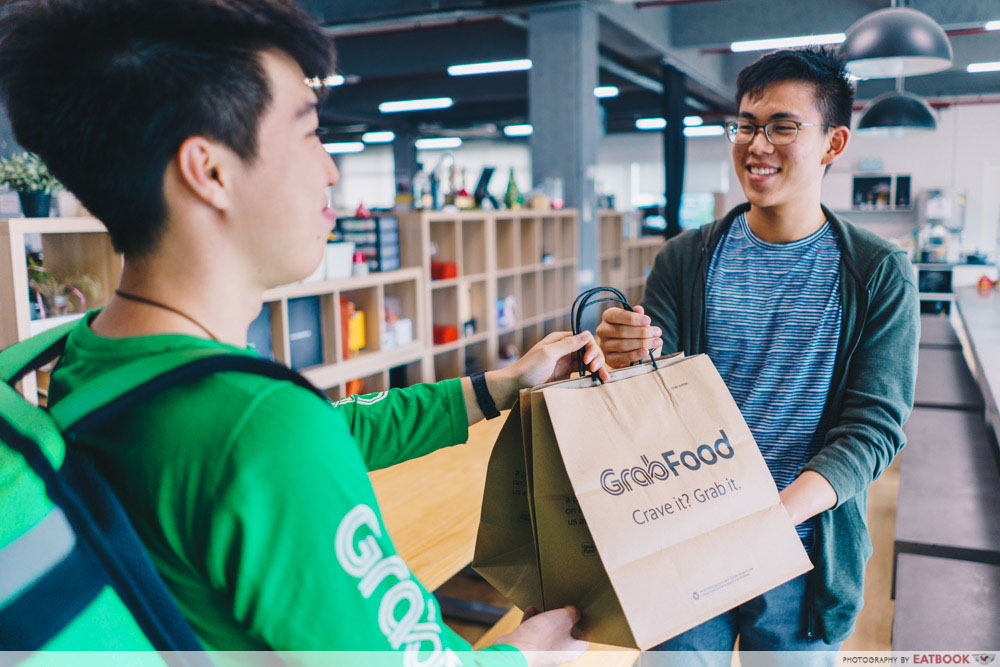
Delivery personnel ply long distances every day to bring customers their meals. The least we can do is to extend words of thanks — which come free of charge.
For those who are too “proud” to thank them in person, Mr Seetoh suggested simply leaving a note at the door.
He also made a request for netizens to create a ‘thank you’ template so shy people can print it and paste it on their doors.
We might not get to hear from these ‘silent hawkers’ often, but their suffering and hardship certainly shouldn’t be ignored.
We hope Singaporeans will answer Mr Seetoh’s plea and support the affected stalls during these difficult times.
Oh, and don’t forget to thank the men and women who deliver your meals directly to your doorsteps too.

Older Hawkers Who Aren’t Online At Risk Of Losing Their Stalls, S’poreans Urged To Support Them
They might be cranky, but they certainly appreciate your patronage.By The Must Share News Team
20 May 2021
KF Seetoh Urges Singaporeans To Support Older Hawkers Who Aren’t Online
Now that dining in at hawker centres and kopitiams are not allowed during Phase 2 (Heightened Alert), many F&B establishments are offering delivery services themselves or in partnership with food delivery companies.However, some older hawkers who may not be as tech-savvy remain offline and are especially affected by the lack of physical customers.
Hoping to shine a light on their predicament, food guru KF Seetoh took to Facebook on Wednesday (19 May) urging Singaporeans to support these hawkers in these difficult times.

Source
He also reminded Singaporeans that wet markets – apparently less crowded than supermarkets – are great places to shop for fresh produce.
Older hawkers who are not online might have been overlooked
According to the Makansutra founder, many hawkers who are not online have been overlooked.
Even though the Government had extended aid in the form of rental rebates, that’s apparently not enough for them to stay afloat.
Given that they have fed many generations of customers, Mr Seetoh appealed for Singaporeans to support these “silent sufferers”.
Comparing them to our ageing parents, Mr Seetoh said that these hawkers might appear cranky, but they appreciate it whenever we patronise their stalls.
Hawkers in the CBD are apparently having it tougher than their counterparts in the heartlands. If you are among the minority who are still working from your office, patronising them certainly wouldn’t be the worst idea.
Over the coming days, Mr Seetoh will apparently be going around to showcase some of these “hawkers-disunited”. You can follow him on his journey via his Facebook page here.
Visit wet markets instead of joining supermarket crowds
Mr Seetoh also gave a shoutout to another bunch of hawkers — stall owners at wet markets.
Instead of joining the crowd at supermarkets, he urged Singaporeans to visit these stalls instead.
In addition to cheaper prices, Mr Seetoh said returning customers might even be able to reserve their desired cuts of meat.
Food delivery riders deserve thanks too
Another group that Mr Seetoh felt deserves more attention are food delivery riders.

Delivery personnel ply long distances every day to bring customers their meals. The least we can do is to extend words of thanks — which come free of charge.
For those who are too “proud” to thank them in person, Mr Seetoh suggested simply leaving a note at the door.
He also made a request for netizens to create a ‘thank you’ template so shy people can print it and paste it on their doors.
Hawkers’ silent suffering cannot be ignored
As with all policies, measures put in place to curb Covid-19 transmission affect some more adversely than others.We might not get to hear from these ‘silent hawkers’ often, but their suffering and hardship certainly shouldn’t be ignored.
We hope Singaporeans will answer Mr Seetoh’s plea and support the affected stalls during these difficult times.
Oh, and don’t forget to thank the men and women who deliver your meals directly to your doorsteps too.
Elderly couple running a char kway teow stall at Seah Im Food Centre got left behind.

By Qi Lu
25 May 2021, 12:26 pm
But thanks to initiatives like the Instagram page @wheretodapao, elderly hawkers not well-versed in online delivery platforms can get more footfall to stay afloat.
Amongst them is a char kuay teow stall operated by an elderly couple.
Owing to a netizen who called for support on their behalf, the Facebook post has garnered over 3.1k shares in less than a day.
They struggle to cope technologically as many eateries turn to online delivery platforms.
This is the case for an elderly couple running a char kuay teow stall at #01-26 Seah Im Food Centre in Harbourfront.
 Source
Source
According to the netizen who shared their plight on Facebook, the uncle and auntie work till late just to sell enough plates of food.
As such, she calls for those in the area to patronise their stall and help them stay afloat.
One netizen loves the wok hei flavour in their char kuay teow, dubbing it one of the best in Singapore.
 Source
Source
Another netizen, besides complimenting the food, praises the auntie for her patience towards customers’ requests.
 Source
Source
According to a netizen who allegedly spoke to the elderly couple, their struggles mainly stem from the subdued office crowd in light of calls to make working from home the default.
 Source
Source
Adding to their woes is the significantly fewer visitors to Sentosa who also used to patronise the hawker centre.
Hopefully, with all our support, the elderly hawkers can tide through this tough period.
After all, they’ve worked tirelessly to feed generations of Singaporeans.

Elderly Seah Im Hawkers Work Till Late To Sell More Food, Netizen Appeals For Support
They have difficulty using online delivery platforms.By Qi Lu
25 May 2021, 12:26 pm
Viral Post Appeals For Support On Behalf Of Elderly Hawkers At Seah Im Food Centre
Slightly over a week into Phase 2 (Heightened Alert), the no dine-in rule has already taken a toll on many hawkers.But thanks to initiatives like the Instagram page @wheretodapao, elderly hawkers not well-versed in online delivery platforms can get more footfall to stay afloat.
Amongst them is a char kuay teow stall operated by an elderly couple.
Owing to a netizen who called for support on their behalf, the Facebook post has garnered over 3.1k shares in less than a day.
Elderly hawkers stay up late to sell enough plates
Although tightened measures have taken a toll on all F&B outlets, elderly hawkers are among some of the worst hit.They struggle to cope technologically as many eateries turn to online delivery platforms.
This is the case for an elderly couple running a char kuay teow stall at #01-26 Seah Im Food Centre in Harbourfront.

According to the netizen who shared their plight on Facebook, the uncle and auntie work till late just to sell enough plates of food.
As such, she calls for those in the area to patronise their stall and help them stay afloat.
Netizens compliment food by Seah Im elderly hawkers
In response to the post, many netizens who went to the stall have given glowing praise for the elderly couple’s signature dishes.One netizen loves the wok hei flavour in their char kuay teow, dubbing it one of the best in Singapore.

Another netizen, besides complimenting the food, praises the auntie for her patience towards customers’ requests.

According to a netizen who allegedly spoke to the elderly couple, their struggles mainly stem from the subdued office crowd in light of calls to make working from home the default.

Adding to their woes is the significantly fewer visitors to Sentosa who also used to patronise the hawker centre.
Show support to elderly hawkers
Although many elderly hawkers are facing a dire situation, it’s heartening to see calls for their support gaining traction.Hopefully, with all our support, the elderly hawkers can tide through this tough period.
After all, they’ve worked tirelessly to feed generations of Singaporeans.
Singapore must ensure no one is left behind as country progresses: PM
Safeguarding social mobility even more important than reducing inequality, he says, as it gives all a fair chance

Prime Minister Lee Hsien Loong speaking to attendees of a closed-door post-National Day Rally dialogue organised by the People's Association on Oct 14, at a reception after the event.PHOTO: LEE HSIEN LOONG/FACEBOOK

Yasmine Yahya
Senior Political Correspondent
OCT 23, 2018
As Singapore progresses, it needs to also ensure the country's poor are not disadvantaged or left behind, Prime Minister Lee Hsien Loong said at a recent dialogue with Singaporeans.
Another important point he underlined is that in Singapore's meritocratic system, every effort should be made to bring everyone to a good starting point.
This would give everyone a fair chance to do well and compete, regardless of whether they are from rich or poor families, or whether their parents have connections or not, he added.
PM Lee was speaking to 530 grassroots leaders at a closed-door post-National Day Rally dialogue organised by the People's Association held on Oct 14.
Transcripts of his opening remarks and part of the question-and-answer session were released to the media yesterday.
A significant portion of his speech was on the hot-button issues of income inequality and social mobility, topics that have dominated the national discourse in recent years.
Inequality and the lack of social mobility are threats to the Government's objective of improving the lives of everyone, he said.
PM Lee's opening remarks at PA's post-National Day Rally dialogue
But inequality is not unique, he noted. It exists everywhere, and it has always existed in Singapore.
"In every society, there is a certain amount of inequality, and there is no society where the top and the bottom are the same," he said.
In Singapore, "if you look back 50 years, a lot of people were poor and lived miserably, and still there were rich towkays (business owners) and landlords. And there was a range from the rich to the poor ".

Over the years, he said, the Government has worked hard to lessen the inequality through a progressive income tax system and high-quality and affordable housing, education and healthcare for all.
But PM Lee believes safeguarding social mobility is even more important than reducing inequality.
"Because people can accept that some are rich, some are poor, provided if I am poor I have a chance to work hard and get better off."
He added: "If I am poor, my children have a chance to study hard and improve their lives. And if they improve their lives, they will improve my life."
That is what happened in the previous generation, and many successful people today came from poor families, PM Lee said.
"But if it is not like that, if people are poor, say, there is no hope, the doors are closed, that they will always remain poor, and their children too, no matter what they do, then I do not think people will accept it."
For that reason, a lot of government policies are targeted at preventing social stratification from taking root in Singapore, he said.
Citing pre-school education for all, he said the move is to ensure that if parents cannot afford to send their child to a "posh place, you still have a good and affordable pre-school which will bring you to a good point when you reach Primary 1, and you are at a good point to start your formal education''.
PM Lee talks about cost of living at PA's post-National Day Rally dialogue
Similarly, HDB towns are designed such that rental blocks and sold flats of various sizes are mixed, so that people of different income groups get to interact, he said.
"Because we want high-and low-income families to live together side by side, get along with one another, interact," he said.
PM Lee talks about 99-year HDB lease at PA's post-National Day Rally dialogue
PM Lee also outlined how, in the past few years, the Government has been tackling issues of concern to Singaporeans.
These include improving the frequency and reliability of public transport, increasing the supply of new flats, building more hospitals and polyclinics to reduce crowding and waiting times, and improving the education system and making it more affordable.
He spoke about these issues at the National Day Rally in August, and reiterated to the grassroots leaders two broad messages from his Rally address.
Firstly, whatever difficulties Singaporeans face, no one is facing it alone.
"The Government understands people's concerns. We are working with you to tackle the problems together," he said.
Secondly, even as Singapore tackles these immediate problems, it has to look ahead and plan for the future.
"We cannot tell what the next 50 years will bring. We have had decades of peace in Singapore, (the Singapore Armed Forces) has not had to go to war, but we live in a troubled world, and the world faces many intractable global problems," he said.
Aside from external pressures, Singapore also has internal tensions that could stress its social fabric, he added.
"We will have to work very hard to stay together and to make sure this good work is not undone."
PM Lee added that social attitudes are just as important as government policies in tackling inequality and safeguarding social mobility.
"We want people to interact freely and comfortably as equals, and we must have regard and respect for one another, regardless of income or status," he said.
PM Lee on packages for the future elderly at PA's post-National Day Rally dialogue
He also urged Singaporeans not to flaunt their wealth or success. "If you succeed, remember, it is not purely the result of your own hard work or even of your own talent. Because many others have helped you along the way."
Singaporeans have to maintain this spirit and social ethos, and remember how much they rely on one another, he added.
"If we do that, then people will say yes, SG100 means something. Work for it. Then Singapore can remain a united society, and we can realise our hopes and dreams for the next 50 years and much longer."
Forum: Digitalisation does not work for all hawker stalls and patrons
June 9, 2021Digitalisation may be a good initiative by the Government, but should not be pursued single-mindedly to apply to every area of life in society. Hawker food is one area. (Hawkers worry about costs of hopping onto online delivery platforms, June 7).
People patronise hawker centres for convenience, to save time and because hawker food can be enjoyed freshly cooked or piping hot, and is very affordable.
At hawker centres, only a few stalls see snaking long queues. These are the exceptional ones.
Online delivery platforms are not going to benefit most other hawkers whose customers go to them only to skip the queue at the more popular stalls, or for a quick meal, and not because the food is fantastic. Hence, not many people are willing to pay the extra cost for delivery of an average bowl of noodles or kaya toast.
Besides, not all food tastes good after a delivery time of 30 minutes or more. Char kway teow, fried carrot cake and oyster omelette, to name a few, are dishes that do not taste great when they are bought as takeaway or delivered, no matter how good the stall is.
The people who may not mind paying an extra $2 to $4 for delivery charges are mainly white-collar workers or those who are tech-savvy.
Blue-collar workers and the elderly, for example, who benefit the most from hawker food, will feel the pinch even if the delivery charge is an extra $1, as this will affect their budget.
In addition, having to navigate the delivery platform apps is bound to kill the appetite of many of the elderly.
Although help is available for hawkers to adopt food delivery services, they may not be sustainable because, over time, digital upgrades become necessary, and this would incur costs and delivery costs will also rise.
Unless hawkers are going to receive brisk businesses from online delivery platforms, digitalisation for many hawkers may not end up being that useful.
Grace Chua Siew Hwee
It's time to mind the gap in Singapore's rich-poor digital divide: Report

The oldest group - over 60 years - were least satisfied with availability of real-time support and assistance provided for service use.PHOTO: ST FILE
Olivia Poh
JUN 7, 2021
SINGAPORE (THE BUSINESS TIMES) - When it comes to access and satisfaction with digital government services, Singapore remains largely divided.
The city-state ranks highly overall in this aspect, but lags behind its global peers when it comes to bridging the gap between wealthy and lower-income residents. The Government will also need to address issues of trust in data management.
Singapore's digital divide - in terms of income - is wider than that of its global peers. Only 42 per cent of Singapore's lowest-income households (below the 10th percentile) have their needs met by online government services, despite having the lowest expectations, a report by the Boston Consulting Group (BCG) found.
Its analysis revealed that this group experienced 50 per cent more problems than the highest-income group in required services not being available online.
In contrast, 66 per cent of higher-income households (above the 10th percentile) surveyed reported that their needs have been met. The 36 percentage point contrast ranks higher than the 22 percentage points in China, or 19 percentage points in the United States.
Overall, Singapore managed a 76 per cent net satisfaction score, ranking fourth out of 36 countries assessed, based on satisfaction with 26 different digital government services. This was higher than its peers in Canada, France and the US, but lagged behind China, India and Estonia.
However, the report found that those in Singapore's lowest-income group (those with annual household income below $12,000, fifth percentile) were 30 per cent less satisfied than their high-income peers (those earning more than $124,000 a year), despite using government services at a similar rate.
Satisfaction in digital government services among Singapore's lowest-income group was the worst among any income group in Singapore.
Trust is another issue in the digital divide. The lowest-income group evidenced by far the least satisfaction in areas of security, transparency and communication of benefits, according to the BCG report.
Just 66 per cent of those in the lowest-income group trusted that their personal information would be safe from hacking, compared with 82 per cent in the highest-income band.
Only 69 per cent of the lower-income group noted a belief that personal information would not be used for any purpose other than for which it was collected, compared with 84 per cent for the highest-income group. This reveals a clear gap in relative trust of digital government services between these two income groups.
The question of trust in digital government services is a particularly timely discussion, considering recent revelations around how data collected under Singapore's TraceTogether programme to track Covid-19 contacts may be used for criminal cases too. This comes despite previous reassurances around the siloed use of data.
Despite moves by the Government to ring-fence the use of data, these revelations have "raised fresh concerns" among citizens, and highlighted the "fragile yet critical importance of transparent data management and its communication", said the report. "These interventions are at greater risk of causing dissatisfaction amongst the lowest-income groups."
Another sore point was that older residents were also less satisfied and had more pain points with Singapore's digital government services. The youngest and oldest groups revealed "contrasting and potentially hard-to-please priorities and pain points", noted the report.
The younger demographic - those aged 18 to 34 - expressed dissatisfaction around ease of use and convenience of platforms; while those in the the oldest group - over 60 years - were least satisfied with availability of real-time support and assistance provided for service use.
Global analysis indicates that when such a divide exists, and satisfaction between the elderly and youth worsens, in particular, a country's total satisfaction with digital government services is likely to decrease.
This reveals the importance of acting early to bridge such a gap and tackle the issue of divergent satisfaction levels before they undermine overall performance, the report noted.
Tackle digital divide, early childhood education to reduce inequality in S'pore: Experts
Digital Divide: Tech helps improve lives but also leaves some struggling
If Singapore is to achieve this goal, it will need to recognise, and address, the two key areas of digital divide - in income and in age.• Income divide: Ensure appropriate provision of desired digital government services while promoting the benefits and reinforcing trust and transparency in management of data submitted to digital government services.
• Age divide: Address questions of user-friendly service provision raised by the youngest age groups, while at the same time working to tackle the parallel concerns of real-time support, assistance and transparency raised by the oldest demographic.
From ART kits to buying groceries online: Why seniors struggle with Covid-19 rules

Lions Befrienders staff member Mavis Chow helping Mr Tupai Warkim with a game on a digital tablet at the group's activity centre on Oct 8, 2021.
PHOTO: ST FILE

Jessie Lim
OCT 11, 2021
SINGAPORE - When Mr Zeng, 63, finally got hold of someone on the phone line who was able to help, he was on day eight of an isolation order and had run out of food at home.
Crying over the phone, the senior who lives alone in the western part of Singapore told volunteers from social enterprise SG Assist he had been surviving on canned food for eight days.
By then, Mr Zeng, who works in cleaning services, no longer had any rations left.
Seniors like him face many challenges trying to abide by Covid-19 regulations, even as the Government has simplified the rules.
Latest guidelines announced by a multi-ministry task force last Saturday (Oct 9) said home recovery will be the default arrangement for everyone except partially or unvaccinated individuals aged 50 and above, vaccinated seniors aged 80 and above, and children four years and below.
Seniors who are at risk of developing severe illness can recover in Covid-19 treatment facilities which have the medical capabilities and resources including oxygen supplementation for patients in need.
Such seniors do not have to worry about keeping up with the changing criteria for the home recovery programme.
But they, like the rest of the population, will still need to use antigen rapid test (ART) kits which now form the bedrock of the Republic's Covid-19 strategy.
If they receive a message from the Ministry of Health (MOH) that they are a close contact of a confirmed case, they are required by law to test themselves with an ART kit and upload the results online.
Senior welfare organisations told The Straits Times many seniors do not even have a fixed mobile number registered with MOH, making it impossible for them to receive messages.
Ms Michelle Lau, co-founder of self-help group Kampung Kakis, said seniors may not have a fixed mobile line if they use pre-paid cards. This means their mobile numbers change when they change these cards, she said.
The 2020 IMDA Annual Survey on Infocomm Usage notes only 60 per cent of residents aged 75 and above use smart phones. Seniors are also less digitally savvy - not knowing how to use Telegram and where self-help groups, like the SG Quarantine Order Support Group, are based.
Some 16,000 members in the group discuss matters like what to do when they have been issued a quarantine order as a contact of a Covid-19 patient.
More than 50 volunteers also do grocery runs for those under quarantine and deliver cooked meals and antigen rapid test (ART) kits if they do not have them.
Ms Evonne Tan, 30, who heads the group's grocery runs initiative said since the group was formed two-and-a-half weeks ago, its members have completed 20 such runs.
The admin executive said: "We have several requests from people who have been quarantined and who can't deliver groceries to their elderly parents who live alone."
However, the group has not received requests from seniors directly.
To bridge the gap between seniors, SG Assist also has phone lines for seniors to seek help.
Such contact numbers can then be circulated among the elderly, who often hear of them through word of mouth or share them via WhatsApp.
Referring to Mr Zeng, SG Assist's co-founder, Adrian Tan, explained why such hotlines are necessary: "The senior can't take care of himself because he has no family support after his wife died. He doesn't know how to buy groceries online and was scared he would be fined if he left his flat."
Once SG Assist learns of such seniors, they will then make a request for volunteers to make grocery runs on the SG Assist mobile app.
The People's Association (PA) has also put up posters in Marsiling-Yew Tee GRC, so residents in need know they can receive ration packs and meals to be delivered by the community centres.
Over in Tampines North, volunteers have also been distributing care packs since last Sunday (Oct 3) to those under the home recovery programme or under quarantine.
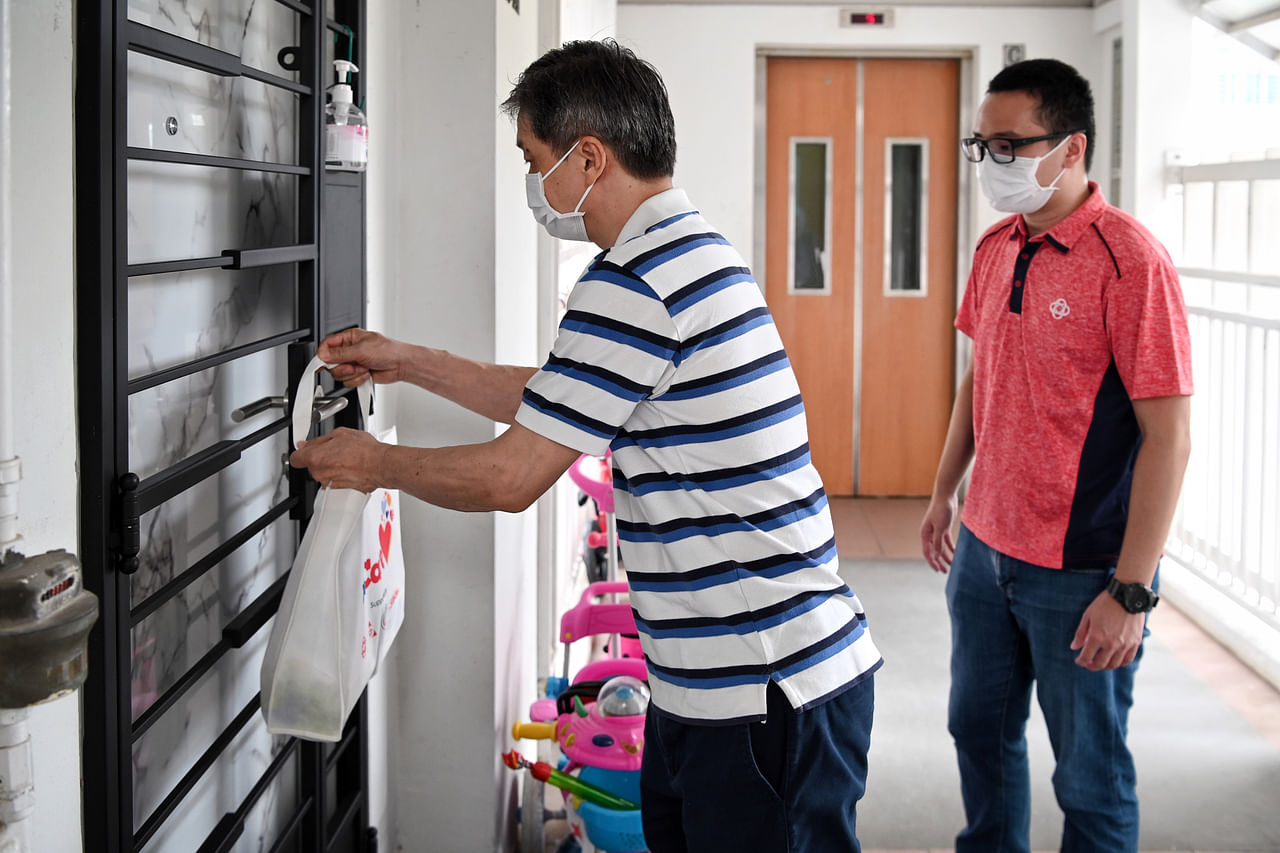
It said as at Oct 6, 1,600 PA staff and volunteers have distributed 8,800 care packs to households with residents on the home recovery programme or QO. Residents who need additional assistance can also seek help from PA staff and volunteers.
Ms Fion Phua, founder of volunteer platform Keeping Hope Alive, has been going door-to-door to swab seniors living in rental Housing Board flats every Sunday and sharing more about vaccination.
Ms Phua said: "These seniors do not know how to use ART kits and don't have WiFi at home. Some still don't know you can walk into a community centre and get the Covid-19 vaccine."
Lions Befrienders, which serves 7,800 seniors, has also been training its seniors to use ART kits at its centres.
Its chairman, Mr Anthony Tay, said: "There is too much information right now. If you have someone who calls you regularly and can lend a listening ear, seniors feel safe to ask the questions they have."
For some S'porean seniors, need for income means having to leave home for work
Wallace Woon
OCT 11, 2021
SINGAPORE - Cobbler Kay Ching Poh, 70, received his booster shot at the end of last month.
It gives him an increased sense of safety and peace of mind as he continues running his makeshift stall outside Chinatown MRT station.
Speaking in Mandarin, Mr Kay said: "I open every day, from 10am to 7pm. Of course, I'm worried because I'm scared of getting infected.
"But I have no choice, I have to eat. If I didn't need to eat, then I would not keep working."
He added that he had also encouraged many of his family members to get vaccinated as a precautionary measure, in particular his older brother, whom he lives with in their Havelock Road flat.
Delivery driver Kiko Tuscany, 65, has to continue working in order to pay his bills.
He said: "Who is going to help me? I still have my home loan to pay. If I don't work, how am I going to survive?"
About five of the 50 seniors whom The Straits Times spoke to said that they have no choice but to leave their homes in order to make a living.
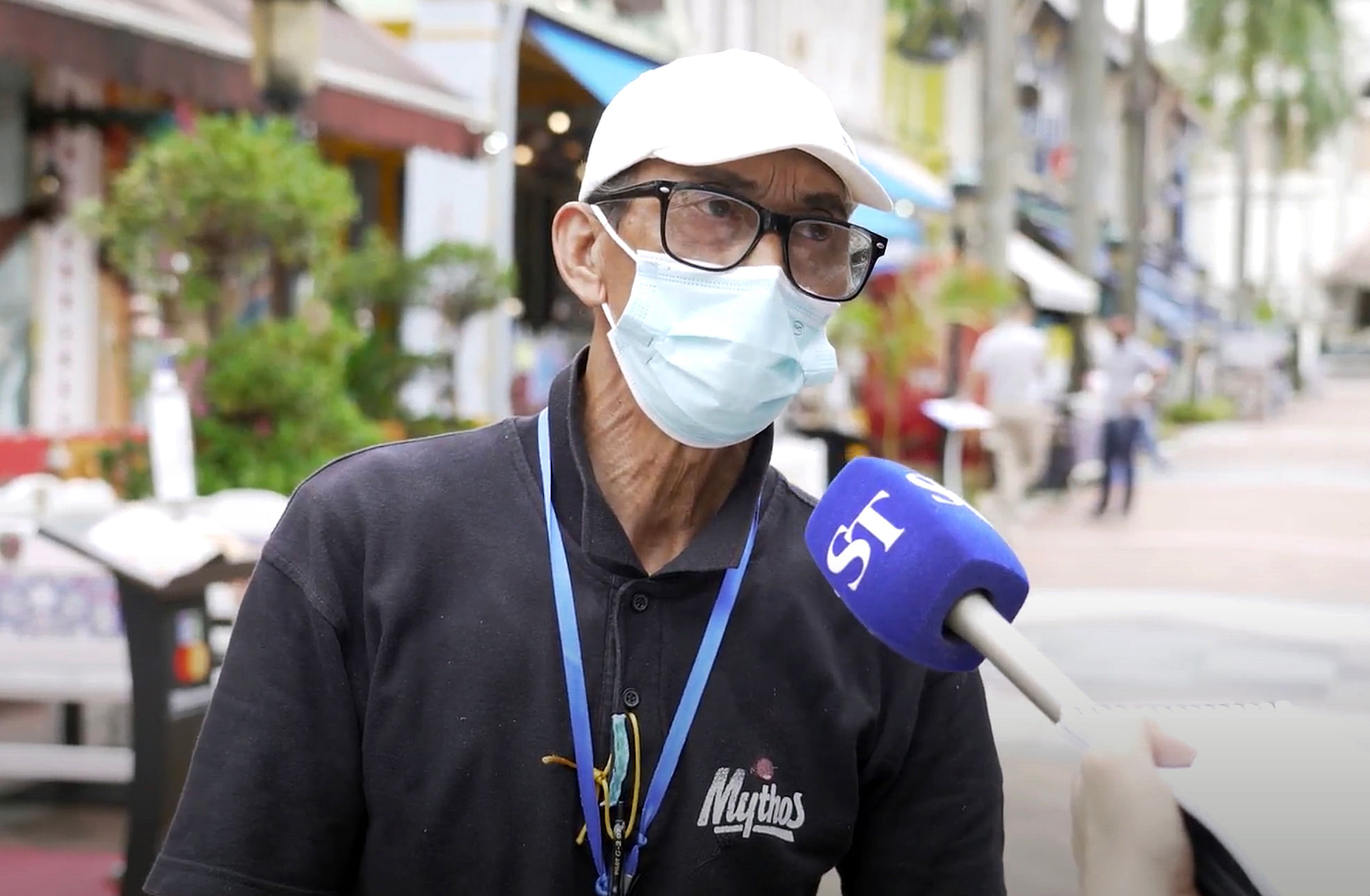
Mr Mokhtar, who declined to give his full name, said he is aware that he is exposing himself to some risk as a private-hire driver.
The 67-year-old, who drives for Grab, makes sure that his car is constantly stocked with hand sanitiser so that he and his passengers can maintain their personal hygiene.
"The first thing is to take care of yourself because this is your life. Especially if you're driving Grab, and it's for income.
"If anything happens or you get infected, you don't have your income," he said, adding that he does not leave his home other than for work.
Mr Mokhtar, who received his booster shot on Sept 15, said that he prefers to stay home with his family and bond over TV shows.
ST met Mr Loh Boon Khian, 67, outside the Kwan Im Thong Hood Cho Temple along Waterloo Street, where he sells tissue paper.
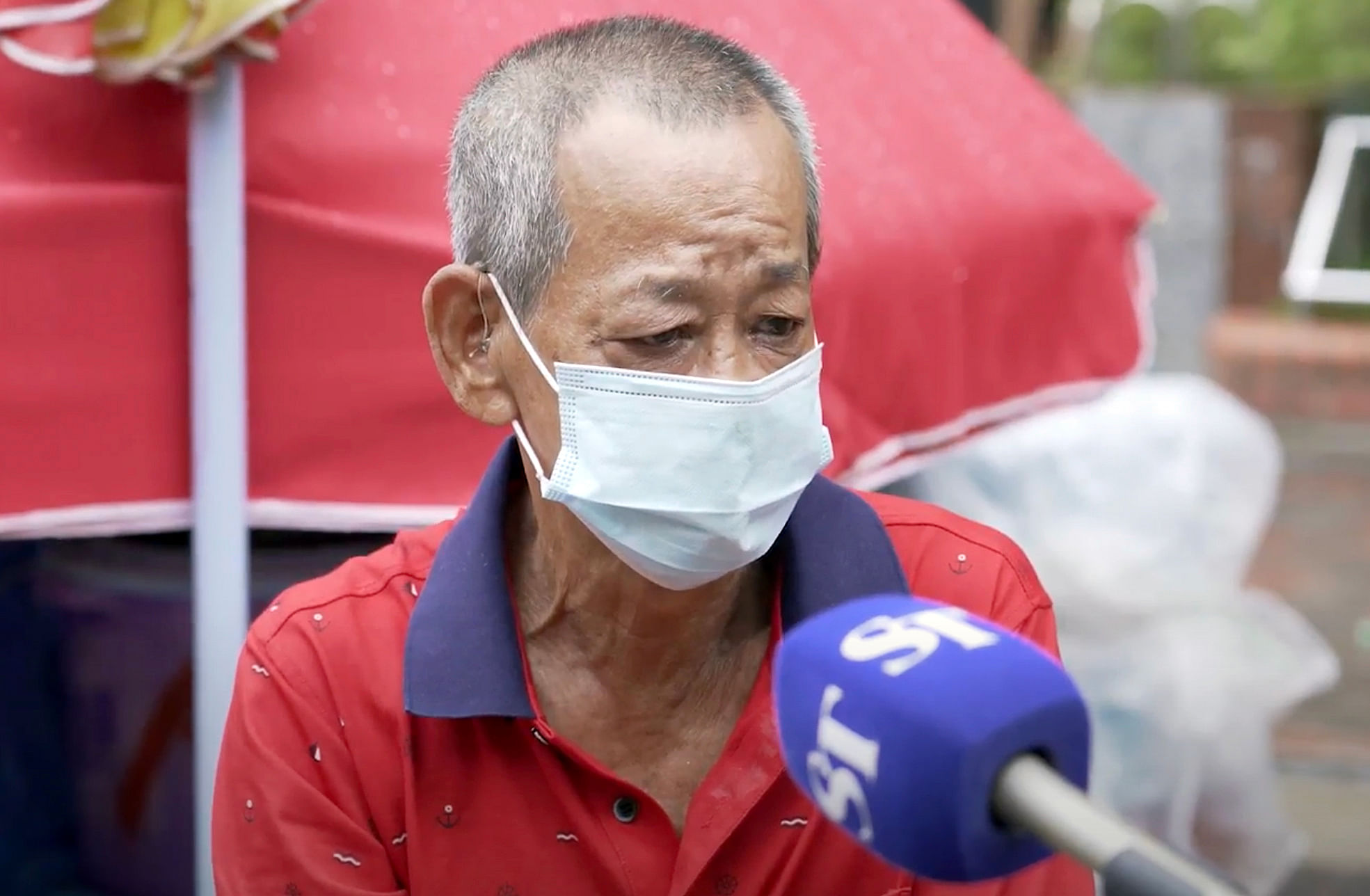
"Before the pandemic, when the temple was open, I could earn about $60 every day. I need the money to see the doctor because my children don't give me any money," said Mr Loh, who walks for about 10 minutes from his home in Selegie every day.
Taxi driver Kamaruddin Matsom, 67, took his third Pfizer shot at the start of this month.
He said he did so in order to continue to earn a living. "I'm driving and every day I go out. After that I go back and I have to rest because I'm tired.
"If I want to buy something, I'll go (out) but as long as you keep clean, you don't have to worry about this virus," he said.
Tackling inequality is not easy, but Singapore knuckles down to ensure no child is left behind

Amelia Teng
Education Correspondent

Primary 5 pupil Nur Syazliana Muhammad Zamri is one of the beneficiaries of the Ministry of Education’s pilot programme to help at-risk students stay in school and be meaningfully engaged.
PHOTO: MARSILING PRIMARY SCHOOL
Nov 11, 2021
SINGAPORE - It was only last year that Marsiling Primary School pupil Nur Syazliana Muhammad Zamri began to turn up at school more frequently.
Prior to that, the Primary 5 girl sometimes bunked school while her mother was busy taking care of her younger siblings at home.
It took an adult figure - a student welfare officer whose main job is to reach out to at-risk students like Syazliana - to change all that.
Today, the 11-year-old pupil attends school daily, along with her two younger siblings, who are in Primary 1 and Primary 3. She received the Edusave Good Progress Award last year for being in the top 10 per cent of her school's cohort in terms of improvement in academic performance and showing good conduct.
Singapore may have one of the best school systems in the world, but it has also been paying greater attention to helping vulnerable students like Syazliana not fall through the cracks, through inter-agency efforts like the Uplifting Pupils in Life and Inspiring Families Taskforce (Uplift) and KidStart.
Prime Minister Lee Hsien Loong announced on Wednesday (Nov 10) that some 13,000 at-risk students will benefit from the expansion of a pilot scheme by the Ministry of Education to help them stay in school through after-school support and holiday activities.
The Uplift Enhanced School Resourcing programme, which has been piloted in 23 schools since 2019, will soon be expanded to about 100 primary and secondary schools.
Another scheme, the Uplift Community Pilot, has supported more than 300 primary and secondary school students in four towns since January last year. From next year, it will be rolled out nationwide.
As part of the programme, schools identify students from disadvantaged backgrounds who exhibit early signs of absenteeism and refer them to a designated Uplift coordinator in the town's Social Service Office.
The coordinator then links the students and their families to suitable resources, such as those on parenting skills, or activities like homework supervision, academic coaching, or arts and sports enrichment opportunities.
There is also KidStart, an Early Childhood Development Agency-led initiative to bridge the gap earlier in life, starting from pre-birth and infancy to the pre-school years.
These efforts are part of the Government's broader commitment to address inequality and make sure education remains a social leveller for children.
Schools play crucial role in helping disadvantaged students | THE BIG STORY
The Covid-19 pandemic has heightened awareness of the disparities between families - but these problems are not new.
Long-term absenteeism, for instance, is a key barrier, impeding children's progress in their learning. The Covid-19 disruptions made it even more crucial to bring these pupils back to school and keep them there, as much as possible.
There also have to be sufficient touch points with these students, even during the school holidays. This is where adults, like a teacher or mentor, play a key role in ensuring such students do not fall behind their peers.
But to really help children and youth in underprivileged circumstances, we need to fix the inequalities in their homes.
Their parents need help too - whether in terms of finding a stable job, getting childcare support or financial assistance - before they can help their own children.
As the Programme for International Student Assessment test results show, disadvantaged students - those in the bottom socio-economic quarter - here find it harder to match up to the top performers here.
And, while 15-year-old students in Singapore on average perform better than those in Organisation for Economic Co-operation and Development countries, the gap between the top and bottom scorers here is wider.
Hence there is an urgent need to ensure social mobility.
Singapore has made great strides in uplifting its people in the past few decades, but going forward, it has to make sure no one is left behind.
It will take many helping hands, and the schools, agencies and community partners have an immense task ahead of them.
But their labour is beginning to bear some fruit - for example, eight in 10 of the students on the Uplift Community Pilot have been attending school more regularly.
Anecdotally, educators say that they see improvements in pupils' academic results and behaviour, after they receive after-school support.
But more information is needed to show how exactly the programmes are working, and, more importantly, why they are working, so that resources can be scaled up even more effectively.
The difficulties in a child's life can be complicated and varied, and free tuition or homework supervision may not always be the answer.
One child may need a more nurturing environment to make up for the lack of a conducive home, while another may just need a nudge in the right direction before he decides to go back to the classroom.
Sometimes lending a listening ear to a student in need can go a long way.
For Syazliana, it was the student welfare officer to whom she confided in and who eventually encouraged her to return to school.
Today, she enjoys school, her favourite subject is science and she has also picked out the secondary schools she is interested in. Her plan, for now, is to study hard.
Much hard work also lies ahead to ensure that others like her also get back on track.
Most sinkies fall into the "No one" category, including moi.
Forum: Allow transactions to be done on websites too, not just on apps
DEC 3, 2021
It is heartening to see the efforts put into getting more people to use various e-services.
However, it seems that many of the developments have been designed with young and tech-savvy people in mind, which is not surprising, since most of the people designing apps and websites belong to this demographic.
For many simple transactions, which may need to be done only once, I am forced to download an app as there is no option to do the transaction on a website.
This includes making payments for healthcare services. For example, I need to download either the app specific to a healthcare cluster or the HealthHub app as there is no option to pay on the website of the institution itself.
Similarly, if I need to update my credit card details on my SP Group utilities account, I can do it only on the app and not on the website.
There are other examples of various agencies which make you download an app just to carry out a particular transaction, with no use for the app after that.
Admittedly, there are certain regular transactions where it makes sense to use an app - like the Parking.sg app, which is very convenient and well designed. But for most other functions, a website will suffice.
The Central Provident Fund Board and the Housing Board are examples of organisations that allow all types of transactions to be carried out on their website, and I applaud them for that.
It may be much faster to do a transaction on a website, rather than go through the process of installing, and maybe later uninstalling, an app.
Also, using a smartphone to enter information can be challenging with the limited screen space, half of which is covered by a keyboard, especially for those with poorer eyesight or hand-eye coordination. A website on a computer screen and physical keyboard make things much easier.
If a transaction is available on an app, what stops an organisation from providing the same service on its website, since all the back-end infrastructure is there.
If it is a matter of security, log-in methods used to authenticate users on the app can be used on the website.
I urge the authorities to have a holistic view of the features available on websites and apps, and consider all demographics at the planning and design stage.
Kunwar Bir Singh
Read between the lines
No one is left behind because
Everyone else is right behind.
No one is left behind because
Everyone else is right behind.
He can move to India with this kind of shitname, they will do all transactions in writing.
no one will be left behind as no matter how old one is, have to work to keep alive therefore how to fall behind, galling behind means no roof over the top and no food on table but CPF full lots of moneyRead between the lines
No one is left behind because
Everyone else is right behind.

Forum: Stressed and left out by strong push towards e-payments
Dec 30, 2021I am an elderly retiree and I write to express my feeling of being increasingly marginalised by a Government that is pushing e-payments without due consideration for the well-being of a large segment of the elderly and less tech-savvy in the community.
Some of us have trouble making e-payments due to the following:
• Difficulty reading small print on the phone and payment kiosks due to failing eyesight
• Difficulty handling one-time password processes
• Difficulty navigating the complex procedures to access various government agencies' websites to get information or make payments
• Fear of keying in the wrong amount or being scammed.
In the last couple of years, I have looked for instructions to make payments by cheque to the Inland Revenue Authority of Singapore (Iras), but it is not on the payment letter. I had to call Iras to find out.
How are all these measures inclusive?
It is good for Singapore to be at the forefront of technology, but please spare a thought for those who, for whatever reason, are unable to keep up.
Going for courses does not always solve the problem as the procedures are soon forgotten unless practised daily.
Please note also that not everyone is able to get help, and having to ask for help is a great blow to our sense of self-worth.
Chan Mei Mei
Forum: Hefty bill for five-minute ambulance trip within hospital grounds
Jan 11, 2022I had five molars extracted at the National Dental Centre Singapore (NDCS) on Dec 29 last year, after which I developed severe reactions, namely high fever, excruciating pain, breathlessness and uncontrollable shivering.
The dental surgery team decided I should be taken by ambulance immediately to Singapore General Hospital's (SGH) accident and emergency (A&E) department for further investigation and treatment.
My daughter and I had to wait about 40 agonising minutes for me to be transported by a private ambulance. The five-minute trip from NDCS to the A&E cost $250.
Was my case not considered an emergency? We were not even consulted on whether we were willing or able to pay for a private ambulance. What if we couldn't afford it?
SGH should be able to manage its own patient conveyance facilities within the hospital instead of using an outside contractor which helps little in patients' comfort and health.
Tan Pin Ho
Forum: Dad had hard time submitting particulars to police
FEB 1, 2022
Recently my dad, who is 74 years old, received a notice for a traffic offence and was told to submit his particulars through the Traffic Police website. Not knowing how to use the Internet, he asked me to assist him.
The first thing I noticed is that there is no way to provide the information other than via Singpass login. However, as he did not know those details, I had to request a mailed copy of his Singpass password.
After receiving the password, I tried to log in again but was notified on the website that a one-time password had to be sent to a mobile number. As my own mobile number was used for my Singpass login, I could not use it for him.
My dad does not own a mobile phone and now I have to get a phone for him just for this purpose.
It has been a frustrating process just trying to submit simple information to the police.
The system does not seem to consider the needs of the older generation of users who may not be literate or tech-savvy. There should still be an option for providing this information via a more traditional method, like filling up and mailing back a form.
The older generation should not be made to feel lost and out of touch over such matters.
I hope that government agencies will be more sensitive to such situations and not leave people behind in pursuing technological advancement.
Elaine Soong Siew Kim
Fuck lah, just go down to TP HQ at MacPherson to settle on the spot lor ! They cannot point you to elsewhere, rite ?
Out of the woods: Elderly man to enjoy first CNY reunion at home after over 30 years
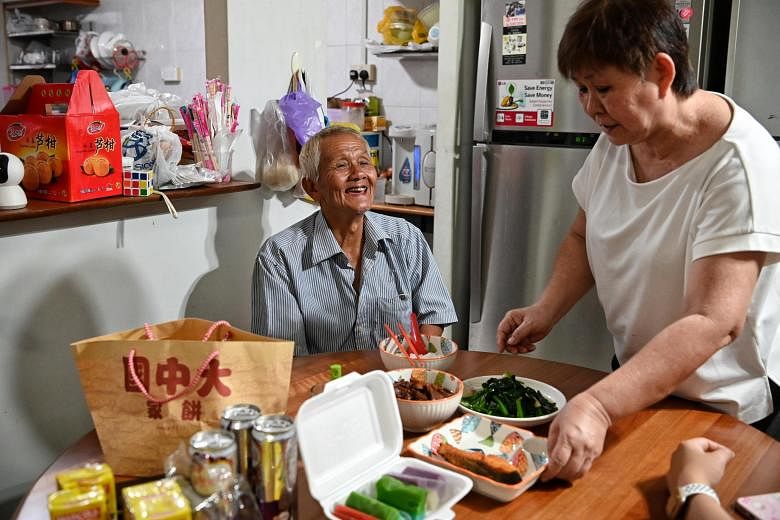
Mr Oh Go Seng (left) chatting with his brother's daughter-in-law Madam Lim Kah Choo as he enjoys a warm home-cooked meal. ST PHOTO: KUA CHEE SIONG
Chin Soo Fang
Senior Correspondent
JAN 28, 2022
SINGAPORE - For the first time in more than 30 years, Mr Oh Go Seng will be celebrating Chinese New Year in a warm home setting.
Just last month, home for him was a makeshift tent made of nylon canvas and wooden sticks in a forested area in Sungei Tengah, where he grew his own vegetables like chilli padi and pandan leaves.
The 79-year-old had been living in the forest for the past 33 years, since his kampung home in the same area was cleared.
In the past, Mr Oh would celebrate Chinese New Year with a duck from the market, split it into a few meals over four to five days. That was a rare treat for himself.
On normal days, his three meals would be mostly porridge with preserved vegetables he prepared over an open fire. He cleaned with water from the pond and wore clothes donated by well-wishers.
"I have never seen snakes, just chameleons and mosquitoes. They are my friends. They don't harm me," he said in Hokkien of his time in the forest.
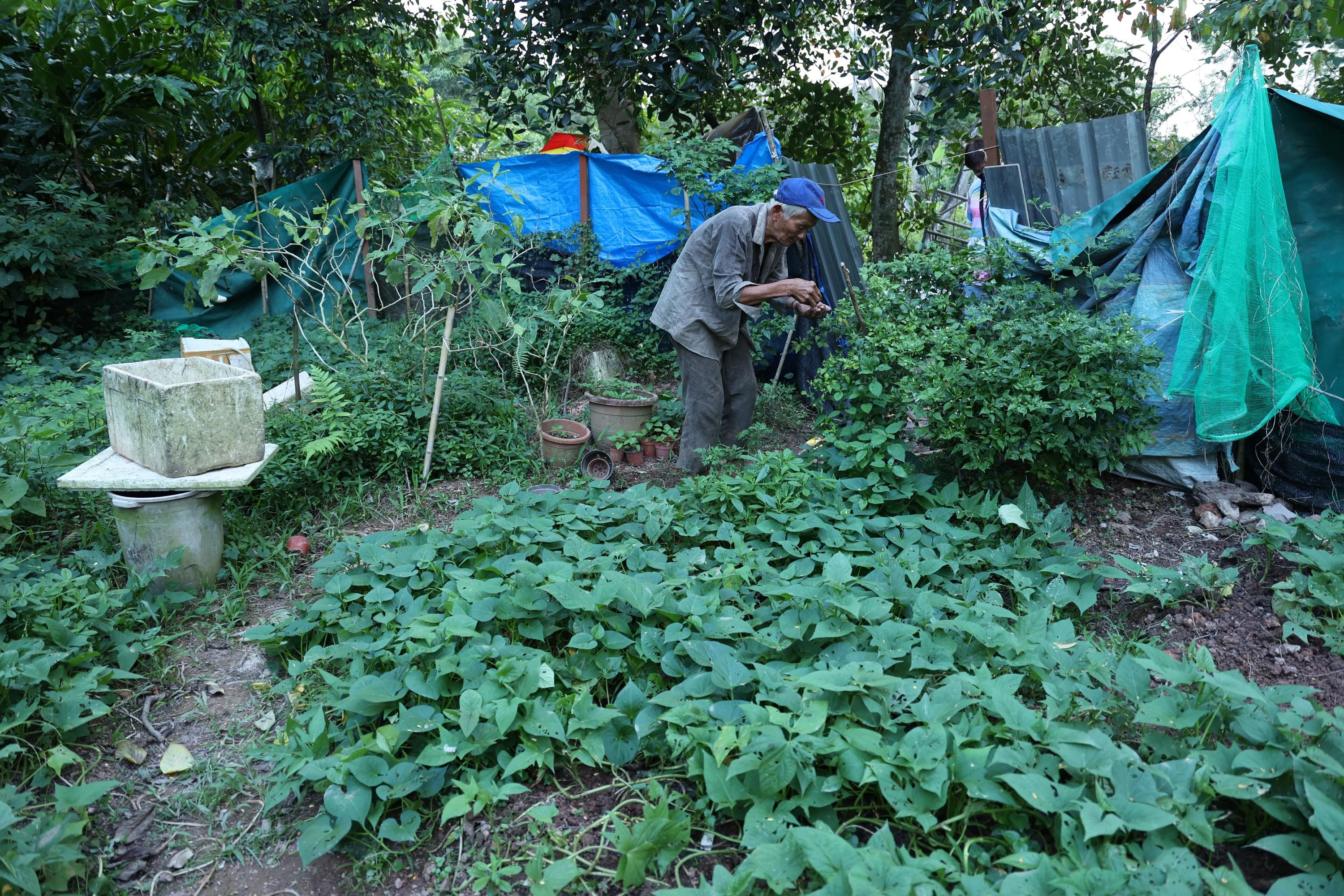
Mr Oh Go Seng had been living in the forest for the past 33 years, since his kampung home in the same area was cleared. PHOTO: SHIN MIN DAILY NEWS
He said his wife, who is in her 50s, and daughter, 19, live in Batam and are not aware of his living conditions. He sends them about $500 monthly, drawn from his savings from his past work as a labourer. His daughter is reading medicine, he said, though he does not know which local university she is in.
He said he used to visit them regularly, but the pandemic has stopped him from doing so.
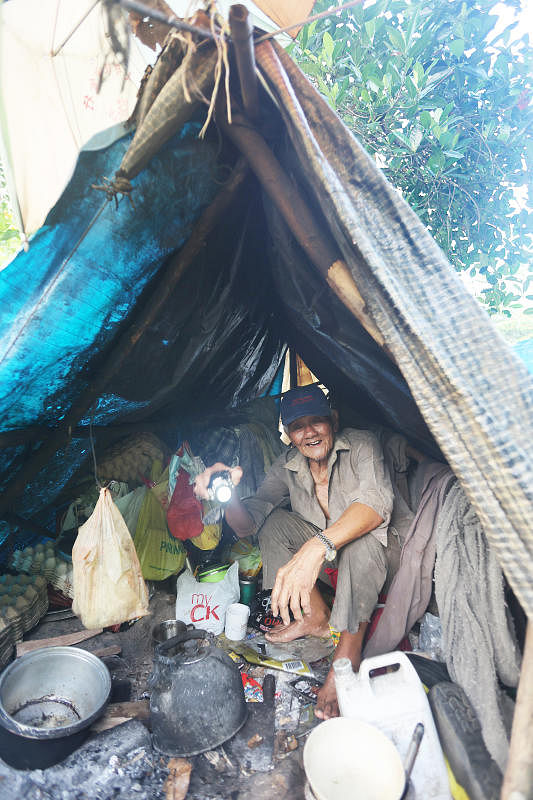
Just last month, home for Mr Oh was a makeshift tent in a forested area in Sungei Tengah. PHOTO: SHIN MIN DAILY NEWS
Mr Oh's plight came to light when he was caught selling vegetables in Teck Whye Lane without a permit last Christmas day. He had lost his job as a pasar malam odd-job labourer during the Covid-19 pandemic two years ago, and his money was running out. All his vegetables were confiscated, and he was let off with a warning.
The incident was filmed by passer-by Vivian Pan, who uploaded it on Facebook.
When contacted, Ms Pan, 36, who owns a company offering cleaning and painting services, said: "The old uncle felt very lost after the incident. I brought him to the market nearby and asked the stallholders if they could give him some space to sell his vegetables. Then I went to the Chinese temple to see if he could set up a stall there. Nobody could help."
However, help did come.
Ms Pan's video went viral and caught the attention of a grassroots volunteer, who heard that Mr Oh has a relative who lives in Bukit Panjang. Its MP, Mr Liang Eng Hwa, was alerted.
On discovering that Mr Oh did not even have a roof over his head, Mr Liang and his volunteers reached out to the relative to ask if she could offer him temporary shelter while they helped him secure a HDB rental flat.
The relative, Madam Lim Kah Choo, is the daughter-in-law of Mr Oh's late brother. She said she met Mr Oh three years ago at the funeral of her mother-in-law. They lost touch after that.
"I asked him if he was doing fine then, and he told me he was living alone 'in the garden'," she said in Mandarin. "I thought he meant that he lived in a small house near a garden."
When Madam Lim, 59, a cleaner, found out from the police and grassroots volunteers that Mr Oh had been calling the forest his home all these years, she was "heartbroken" and welcomed him into her five-room flat in Bangkit Road.
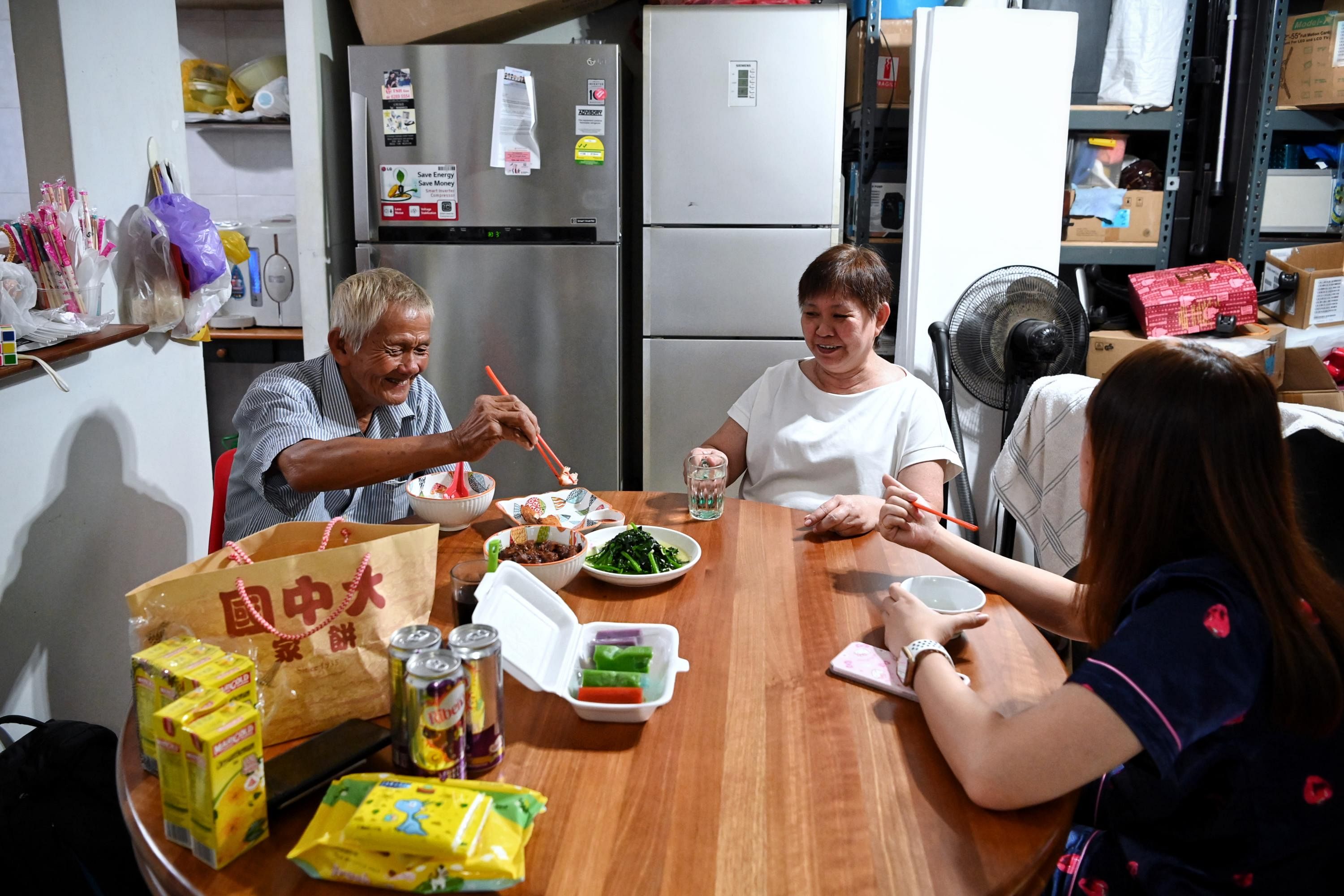
Mr Oh Go Seng enjoying a warm home-cooked meal with his brother's daughter-in-law Madam Lim Kah Choo (centre) and niece Jeanne Oh. ST PHOTO: KUA CHEE SIONG
Mr Oh moved in with her and her family a week ago. He also collected the keys to his one-room rental flat in Choa Chu Kang a few days later. The grassroots volunteers are assisting him with the repair works and furnishing. On Saturday (Jan 29), they delivered a bed, pillow and bedsheets to his new flat.
Mr Liang, who had dinner with Mr Oh and his relatives on Jan 20, said: "At his age, I find his resilience and tenacity in life most remarkable and heartening."
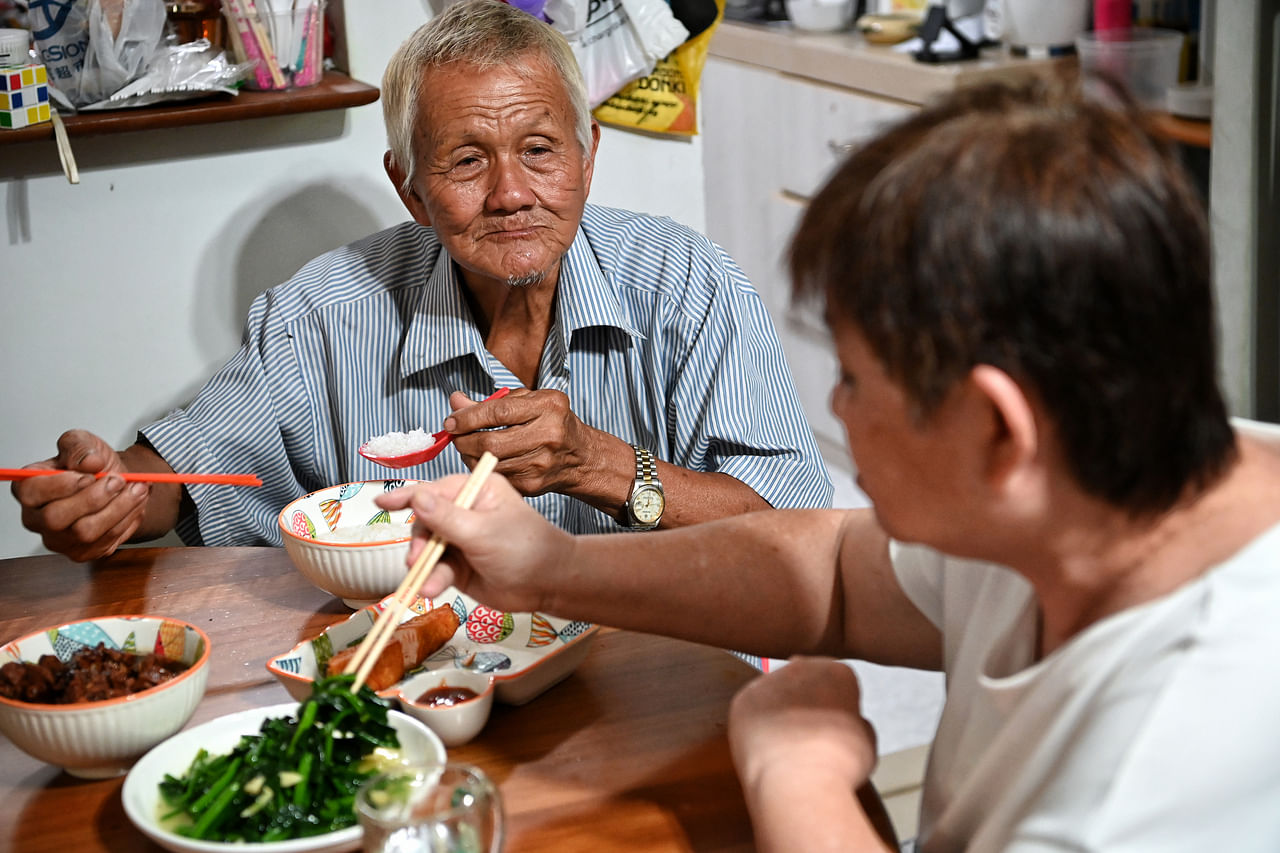
Mr Oh moved in with Madam Lim and her family a week ago. ST PHOTO: KUA CHEE SIONG
He added that once Mr Oh has settled into his new flat, volunteers will work with the local grassroots leaders to find him community spaces to grow his vegetables.
Mr Oh also found a job as a gardener at a horticulture company which pays him about $1,200 monthly, though he now has to work and save doubly hard to pay his rent.
This Chinese New Year, he will be having a steamboat dinner with his relatives for a change.
"I don't expect much," the soft-spoken man said. "I am just thankful to have a home now."
Sleeping rough: Some choose to do so, others have fallen on hard times
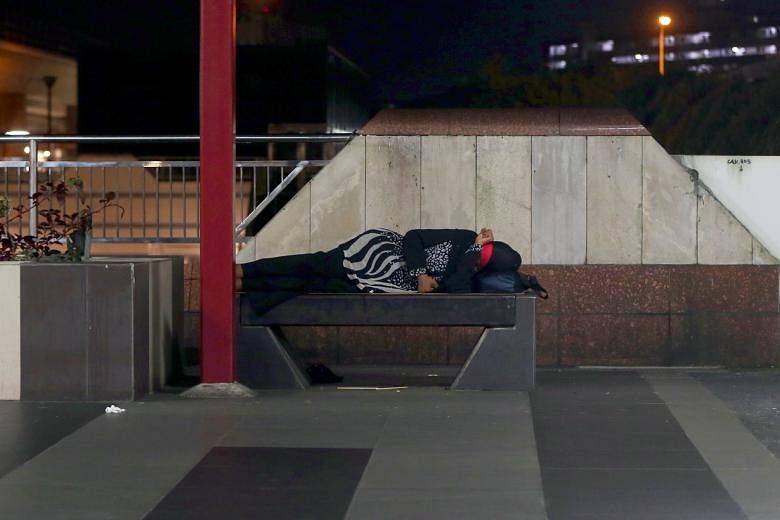
Among the 20 people seen sleeping in the vicinity of Woodlands MRT station are rough sleepers, who are mainly Singaporeans. PHOTO: ST FILE

Zaihan Mohamed Yusof
JAN 17, 2022
SINGAPORE - She was spotted on a bench at Woodlands MRT station three days after Christmas at around 11pm and mostly spent her time scrolling through her mobile phone. At around 1am, Madam Jane (not her real name) curled up on the bench, which was lined with cardboard, tucked her small bag under her head, and fell asleep.
The 60-year-old Singaporean was one of around 10 rough sleepers, along with a group of foreign workers, The Straits Times observed nightly at the station between Christmas Day and New Year last month (Dec).
Responding to queries, the Ministry of Social and Family Development (MSF) said the number of rough sleepers who have received support from the ministry and its non-governmental partners has risen five-fold compared to figures pre-Covid-19 pandemic.
There were at least 200 individuals who were in shelters in March 2020, but from April 2020 - Singapore entered a circuit breaker from April 7, 2020 to June 1, 2020 to arrest rising Covid-19 infections - to November 2021, the number in transitional shelters and Safe Sound Sleeping Places (S3Ps) grew to over 1,000.
Said an MSF spokesman: "During the circuit breaker period in 2020, many rough sleepers were displaced as safe-distancing measures were implemented and public spaces were closed.
"Many came forward to seek assistance. This led to a sudden surge in demand for shelter as more were willing to seek shelter support."
MSF, along with support groups like The Partners Engaging and Empowering Rough Sleepers Network, had put out an urgent call during the circuit breaker for the community to offer premises as S3Ps. And many responded.
There were seven organisations operating S3Ps before the Covid-19 pandemic hit and it increased to more than 40 during the circuit breaker, offering over 900 spaces, in contrast to the 100 spaces pre-pandemic.
Among the group were community clubs, mosques and churches.
Said the MSF spokesman: "At the peak in May 2020, we had a capacity of 920 spaces in 45 S3Ps. Since the circuit breaker period in 2020, we have supported over 1,000 rough sleepers."
"As of Dec 30 2021, there were 25 S3Ps offering around 200 spaces," added the spokesman.
Madam Jane, though, has declined shelter or other forms of assistance.
With the Woodlands station toilets open and a charging point for mobile phones near the facility, she finds it a convenient spot to sleep at night.
"I have a home but it has taken so long for my ex-husband to sell our Tampines flat," she told ST.
"I don't have children and I have not told my siblings (about my situation) because I don't want to trouble anybody."
Close by on another bench, Ronald (not his real name), still wearing his supermarket uniform, was preparing to retire for the night on his makeshift bed.
The middle-aged man said he wakes up early every morning, washes up at the toilets at the station and heads off to work with the first wave of commuters just before 6am.
The Singaporean, who works in Sembawang, was not willing to share much, and only said: "I'm not homeless. But I decided to move out from my flat and live like this for one year due to a family matter."
While Madam Jane and Ronald claim they have homes, others don't.
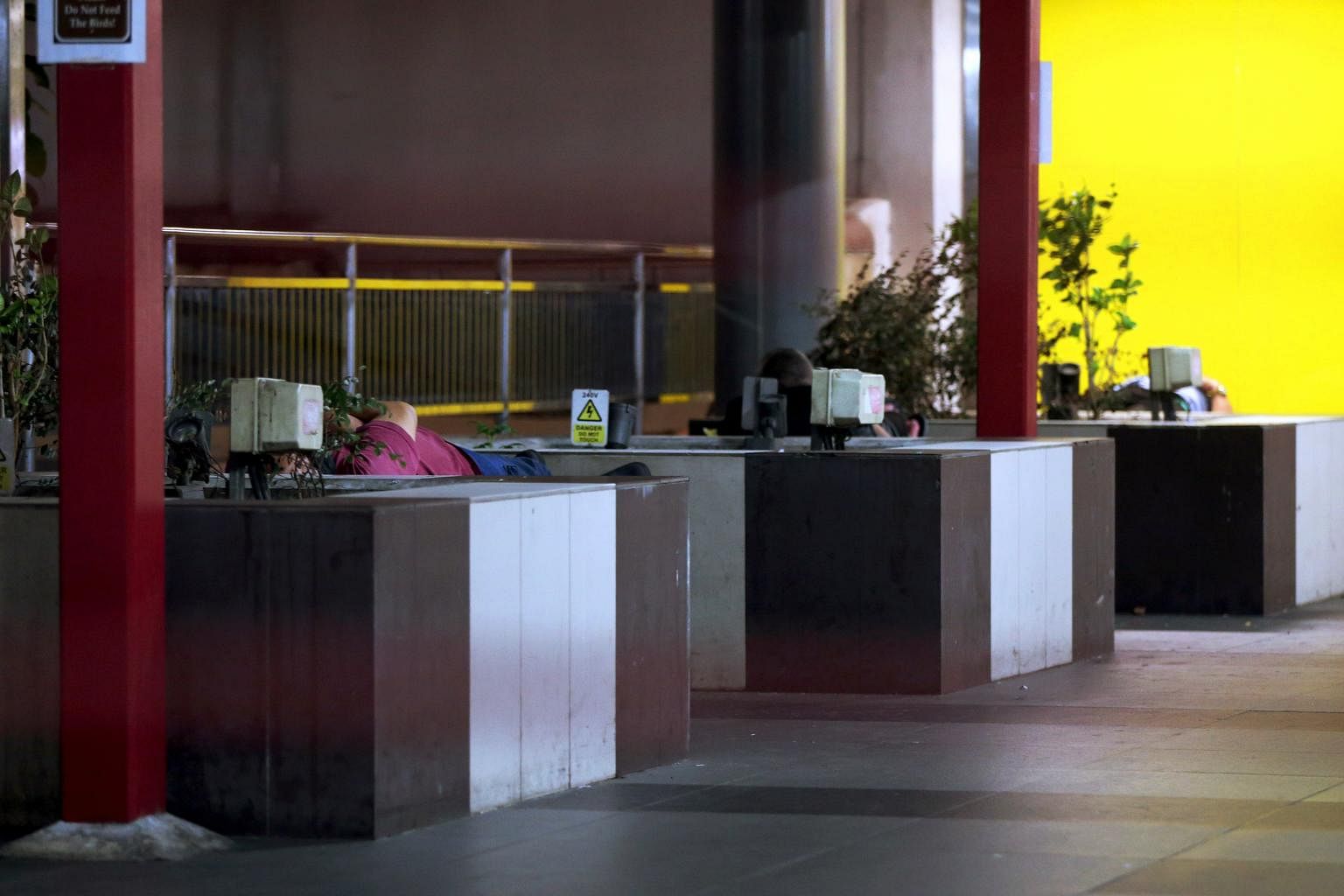
Men and women sleep on benches found between the MRT station and bus intercharge in Woodlands. ST PHOTO: ZAIHAN MOHAMED YUSOF
ST also spoke to a metalwork specialist from Malaysia who spent the nights sleeping on a metal bench at the edge of the train station.
The man, who declined to give his name, said he was in his 30s. He has not returned home since March 2020.
"I'm out of luck finding a reasonably-priced flat to rent. I used to share a room but my roommate has returned home," he said in Malay.
Mr Abraham Yeo, 40, a volunteer for Homeless Hearts of Singapore, is worried the number of rough sleepers could grow as the wait for rental flats is now longer, rental costs have increased and vacancies at shelters and hostels are dwindling.
Mr Lam Sheau Kai, president of SMRT Trains, said "staff have not noticed rough sleepers in the vicinity of Woodlands station recently".
"If our staff come across rough sleepers on the station's premises, they would advise them to find alternatives and notify the relevant authorities," he added.
The rough sleepers ST encountered at the station last month said they occasionally receive cash donations and food from commuters.
A staff member at an eatery at the station sometimes leaves burgers at the sleeping spots.
On that post-Christmas night last month, when asked if she had eaten, Madam Jane showed a bun she was saving.
"I survive on very little," she said.
"The toilets are open and I have a place to charge my mobile phone near the female toilet.
"Sometimes people give food or money. It is safe and nobody has chased me away from here."
Similar threads
- Replies
- 24
- Views
- 1K
- Replies
- 114
- Views
- 5K
- Replies
- 2
- Views
- 242
- Replies
- 8
- Views
- 254
